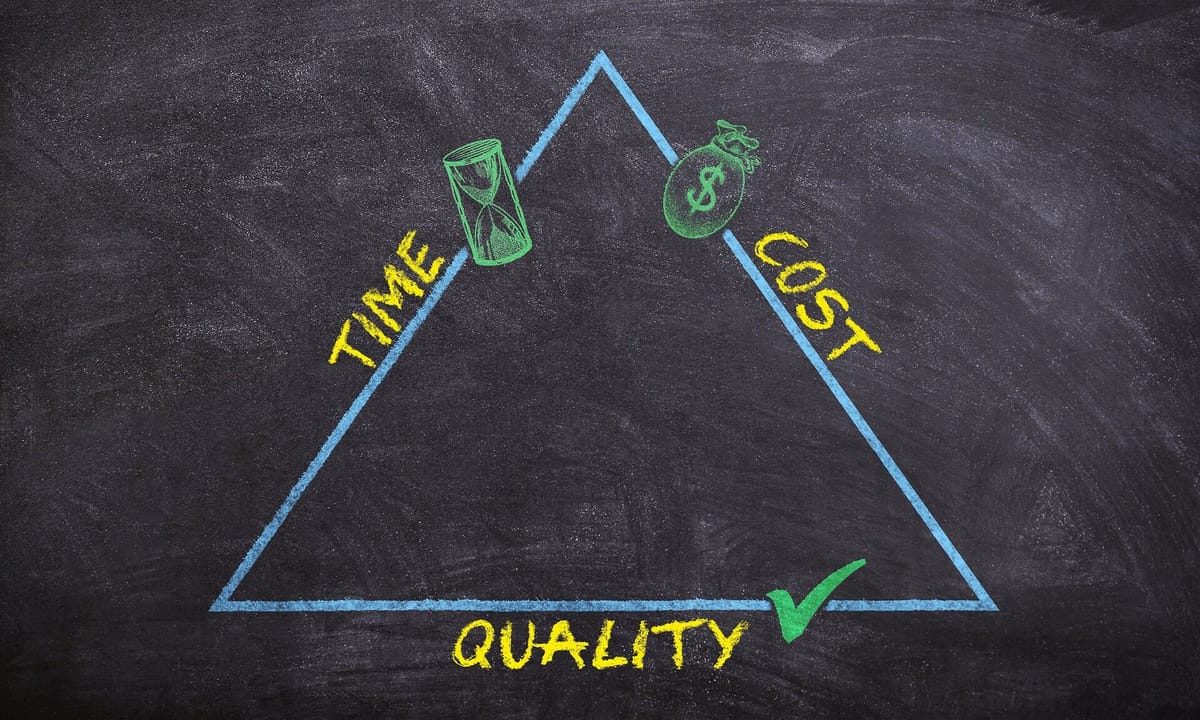What is a zero-based budget and why is it important?
A zero-based budget (ZBB) is a budgeting method where you allocate every dollar earned to a specific category or expense. You start with a blank slate - zero - each time you budget, rather than tweaking your past budget.
This method may not suit everyone but adopting a zero-based budgeting approach can provide greater clarity and control over your finances.
Here's why: when you use a zero-based plan, you map out where every penny goes. This transforms budgeting from a passive review of expenses into a proactive financial strategy.
Unlike more traditional budgeting that uses the prior year as a baseline, zero-based budgeting takes a "back to basics" approach. Simply put, every expense must be newly justified and approved for the upcoming period.
Zero-based budgeting advantages and disadvantages
On paper, it sounds ideal - aligning spending squarely with top priorities. But what are the real upsides and downsides your team needs to wrestle with?
First, the good stuff. Zero-based budgets offer three key perks:
1. Aligns expenses to current goals - This type of budgeting ensures dollars flow to what matters most right now, rather than potentially outdated priorities.
2. Eliminates inefficiency - With expenses scrutinized from scratch, teams trim waste and fund only value-adding activities.
3. Optimizes spending - Research shows that 58% of companies that use zero-based budgeting tend to be more successful at meeting their cost targets.
Some more advantages of zero-based budgeting include:
- Improves financial awareness
- Better cost control and reduction
- Flexibility and adaptability
But it isn’t all roses, here are a few disadvantages of zero-based budgeting to consider:
- Major time suck upfront. Reviewing and justifying each expense in detail is administrative quicksand.
- Tough culture shift. Teams accustomed to old budget formulas may resist. Expect major mindset and process growing pains.
- Short-term focus risk. A relentless cost-cutting focus can distract from long-term strategy, which still matters.
- Morale and motivation drain. Employees may feel demoralized and distrusted if switching to zero budgeting seems to only be about slashing expenses.
- Missed growth opportunities. In eliminating waste, don’t overlook chances to invest in growth, innovation, and value creation. Spending enables winning too.
Zero-based budgeting is a powerful tool but, like any tool, it's most effective when used wisely and in the right context.

6 zero-based budgeting myths debunked
Now, let's dive into some of those pesky myths about zero-based budgeting (ZBB) and set the record straight, shall we?
Myth #1: Zero-based budgeting is only for companies in 'damage-control mode'
Many thriving industry leaders across sectors, including Amazon, actively use zero-based budgeting NOT as a last-ditch turnaround tool, but rather as an annual reset to align spending with evolving strategy in times of rapid growth and change.
By thoroughly reviewing all expenditures through a ZBB lens, successful companies can find bloat, enable innovation investments, and tie spending directly back to current strategic priorities.
Myth #2: It’s too time-intensive and complex to implement successfully
No doubt, zero-based budgeting requires heavy lifting upfront. However, today's software, analytics, and targeting make smart and efficient analysis possible across all spending.
The initial investment required to implement ZBB pays exponential dividends down the road in boosted clarity, visibility, and savings year-over-year.
Is it painless? No.
But is it worth it? Absolutely.
Myth #3: It's all about cost reduction
When executed strategically, zero-based budgeting is not just about arbitrary cutting for cutting’s sake.
At its core, ZBB provides a framework for aligning each dollar of spending very intentionally with business priorities and growth drivers. For some companies, that alignment means shifting funding from antiquated programs to innovative initiatives that keep them competitive.
For others, it means doubling down on key growth areas – even increasing spending where needed. Overall, ZBB gives leadership a bird’s eye view to optimize human and financial resources.

Myth #4: Zero-based budgeting stifles risk-taking and innovation
Think of ZBB as a reality check for your innovative ideas. It doesn't discourage risks; it quantifies them.
With increased visibility into cost implications, companies can anchor their boldest ideas in financial reality instead of best guesses. ZBB enables smart risks grounded in numbers, not just aspirations.
Myth #5: It's inapplicable to certain industries or sectors
Zero-based budgeting is extraordinarily versatile, adapting to apply value levers across any industry, sector, or nuanced financial landscape.
Manufacturing, healthcare, financial services, tech startups - you name it.
Unlike a one-size-fits-all approach, ZBB can customize to suit ANY company’s financial environment - keeping accountability while remaining flexible to business needs.
Myth #6: It’s short-sighted and ignores the long view
While ZBB operates on annual budget cycles for relevance, the insights gained in the annual process inform longer-term strategy.
Leadership teams can connect the dots looking back at 3-5 years of zero-based budget cycles to identify trends, make forecasts, and cement steady stepping-stone decisions toward bolder five to 10-year visions. In essence, ZBB provides a regular reality check to power big dreams.
FAQs: Zero-based budgeting
Q. What is zero-based budgeting (ZBB)?
Zero-based budgeting is a financial planning method where every expense must be justified for each new period, starting from a "zero base." It's about building your budget from scratch, regardless of previous budgets, ensuring that every dollar is allocated based on current needs and goals.
Q. How does zero-based budgeting differ from traditional budgeting?
Traditional budgeting often starts with the previous year's budget and makes adjustments based on new goals or changes. In contrast, ZBB starts from zero and requires justification for every item, making no assumptions based on past spending.
Q. What are the main benefits of zero-based budgeting?
The primary benefits include increased cost control, enhanced alignment with strategic goals, improved efficiency, and fostering a culture of accountability and mindful spending.
Q. Are there any industries where zero-based budgeting is particularly effective?
ZBB can be adapted to any industry. However, it's particularly effective in industries with fluctuating revenues, high fixed costs, or those undergoing rapid change, as it allows for flexible and responsive financial planning.
Q. What is the core characteristic that defines a zero-based budget?
The defining characteristic of a zero-based budget is its requirement to justify every expense, regardless of whether it was part of the previous period's budget. This approach demands a detailed review and analysis of all expenses, ensuring that each cost contributes to the company's strategic objectives.
Q. What is zero-based budgeting cost control?
Zero-based budgeting Cost Control refers to the practice of using the zero-based budgeting approach specifically for controlling and optimizing expenses.
It involves scrutinizing each cost line, questioning the necessity and efficiency of each expense, and cutting or reallocating funds to ensure optimal use of resources. This focused approach to budgeting helps organizations control costs more effectively by aligning spending with strategic objectives and current operational needs.
Master the art of budgeting & forecasting
Enhance your skills in budgeting and forecasting with expert techniques used by top companies worldwide. Learn from Christian Wattig, an experienced FP&A leader, and gain insights into the five essential phases of budgeting and the forecasting strategies that help businesses stay ahead.
With Christian as your guide, you’ll get hands-on experience navigating the key steps of annual budgeting, from Pre Kick-Off to Final Alignment, and gain the confidence to create accurate forecasts that support strategic decision-making.
Enrol now to start mastering the financial tools that make you an indispensable part of your organization!



 Follow us on LinkedIn
Follow us on LinkedIn




